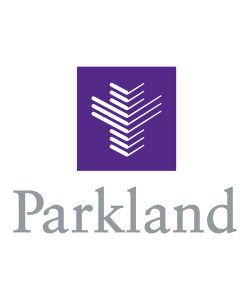 Life experiences help former patients build bridges, inspire hope
Life experiences help former patients build bridges, inspire hope
DALLAS– As a volunteer tending injured soldiers during the Civil War in a Washington, D.C. hospital, poet Walt Whitman wrote, “I do not ask the wounded person how he feels, I myself become the wounded person.”
That kind of powerful empathy is what inspires a new program helping patients with addiction or mental health issues at Parkland Health & Hospital System.
Launched in May 2014, the Peer Recovery Navigators Program at Parkland now employs five full-time Peer Recovery Specialists, also known as peer navigators, who are in recovery from their own struggles with substance use or mental health problems, to assist patients diagnosed with these conditions. To date, four have completed state certification. The Parkland program also includes a clinical pharmacist and a social worker.
In Parkland’s main and psychiatric emergency departments, the peer navigators meet with patients who have been identified with possible mental health or substance use problems while they are waiting to be seen by a clinician. In addition to helping patients feel more at ease by offering support and sharing their stories of recovery, the navigators provide information about the Peer Recovery Navigation Program at Parkland.
Once patients enroll in the program and are discharged from the hospital, the navigators call them weekly, providing recovery support, referrals to the pharmacist for medication needs or to the social worker for housing and transportation challenges or other social issues, and information about other available community resources. The peer navigators also co-lead recovery support groups on Parkland’s psychiatric inpatient unit twice weekly. So far in FY 2015, Parkland has enrolled more than 1,200 patients in the program, with a goal of reaching 1,800 patients by Sept. 30.
“Peer navigation programs are a new concept in the healthcare industry. We were convinced that peer navigators would be invaluable in helping our patients receive the care they deserve,” said LaShan Davis, RN, Director of Care Management at Parkland.
Medical research supports the fact that individuals are more open and comfortable talking to someone who has had like experiences. Medicaid programs began to embrace peer support for people living with mental illness about 10 years ago. Parkland is eligible to receive funding for the Peer Recovery Program through the 1115 Waiver as long as milestones continue to be met.
“It’s so much easier to listen to someone who has been in your shoes and can understand what you are experiencing,” said Celeste Johnson, DNP, APRN, PMH CNS, Director of Nursing, Psychiatric Services at Parkland. “Peer navigators have experienced depression, anxiety, substance use or other mental health issues, so they know the challenges. Patients trust them because they’ve ‘been there, done that’.”
Designated as National Minority Mental Health Awareness Month, July is a time for building trust within diverse communities about mental health needs of minority groups.
The majority of Parkland’s mental health patients are members of ethnic minorities, groups who traditionally face barriers in getting the help they need. Parkland’s peer navigators also are members of minority groups – four are African-American and one is Hispanic, enabling them to bridge some of the cultural barriers that are known to hinder minority groups from obtaining mental health services they may require.
According to the National Alliance on Mental Illness (NAMI), “Ethnic minorities tend to be disenfranchised in the field of mental health. Even more, they also tend to avoid mental health services for fear of being racially profiled against, misunderstood, diagnosed incorrectly, ignored, treated indifferently, or due to trust issues.”
Shalonda Hill, 44, one of Parkland’s Certified Peer Recovery Support Specialists, struggled with depression as a teen, using alcohol to cope with the difficulties in her life. At age 17, she learned she was pregnant and had to leave high school to go to work to provide for her son. Her cycle of alcohol dependence continued until her early twenties, when she turned to her church for help. There she found support to make her own recovery and to “stay alcohol and depression free,” she said.
She completed her high school degree, then earned an associate degree as a substance abuse counselor and certified medical assistant before becoming a Certified Peer Support Specialist.
“I’ve dedicated my life to helping others find and maintain recovery,” she said.
Another Parkland Peer Specialist, Daniel Melendez, 57, spent 20 years in high-functioning jobs, successfully hiding his meth addiction.
“There was no alcohol or drugs in my family growing up. But addiction doesn’t discriminate,” he said. “In my teens I experimented with drugs and quickly got hooked. Addiction ruled my life. I finally got help and was able to shake it at age 38. I’ve been clean and sober for almost 20 years.”
“I can’t wait to come to work at Parkland each morning,” Melendez said. “What an awesome privilege it is to be able to lead others into recovery.”
“Helping others has always been my passion and I will always be grateful to the ones that took a chance to help me find my way,” Hill said.
“All of our peer navigators came through it and are in recovery,” said Davis. “Patients think, ‘if they can do it, maybe I can, too.’ They’re a living symbol of hope and possibility. They open doors in our patient’s hearts.”
For more information about Parkland services, please visit www.parklandhospital.com








